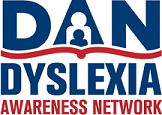Dyslexia is a specific learning disability that is neurobiological in origin. It is characterized by difficulties with accurate and/or fluent word recognition and by poor spelling and decoding abilities. These difficulties typically result from a deficit in the phonological component of language that is often unexpected in relation to other cognitive abilities and the provision of effective classroom instruction. Secondary consequences may include problems in reading comprehension and reduced reading experience that can impede growth of vocabulary and background knowledge.”
Adopted by the IDA Board of Directors, Nov. 12, 2002. This Definition is also used by the National Institute of Child Health and Human Development (NICHD). Many state education codes, including New Jersey, Ohio and Utah, have adopted this definition.
Signs of dyslexia in children ages 0-5 include:
- Speech delays
- Trouble learning common nursery rhymes
- Difficulty learning (and remembering) the names of letters in the alphabet
- Unable to recognize letters in his/her own name
- Mispronouncing familiar words
- Not recognizing rhyming patterns like “cat”, “bat” and “rat”
Signs of dyslexia in school age children include:
- Does not associate letters with sounds, such as the letter B with the “buh” sound (letter to sound association)
- Cannot sound out even simple words like cat, pot, tap
- Discrepancies in:
- word recognition
- memorization
- handwriting
- spelling
- Difficulty in accurately expressing their knowledge and ideas
- Does not understand that words come apart (prefix + base + suffix)
- Complains about how hard reading is, takes bathroom trips when its time to read aloud in class
- A display of anger, frustration, and low self worth
Know How Dyslexia is Diagnosed
The evaluation by a neuropsychologist or trained psychologist typically includes the following:
- Intellectual and academic achievement testing
- Receptive (listening) and expressive language skills
- Phonological skills; phonemic awareness
- Rapid naming of letters and numbers
- Read lists of words in isolation and in context
We’re here to help! Call the Dyslexia Awareness Network at 309-679-0788 with questions or for help getting started.

